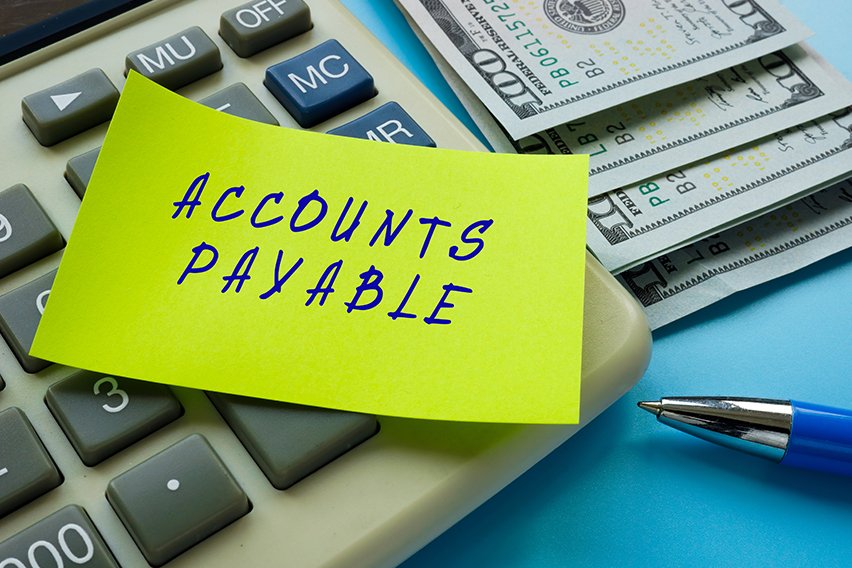Accounts Receivable Management: 6 Best Improving Tips

Managing your finances is one of the most important parts of any business. But it is also one of the most difficult.
One aspect of your finances that needs special attention is your accounts receivable. This is because your accounts receivable is extremely crucial for any business process. Your day-to-day operations hugely depend on reliable payment processing.
Businesses with poor financial management tend to be on a path to bankruptcy. So how can you make sure that your business doesn’t follow the same path?
We’ll take you through what accounts receivable are and the importance of them. We’ve also put together a list of the 6 best tips for improving your accounts receivable. So you can keep your business finances healthy and flowing freely.
Here’s What We’ll Cover:
What Is Accounts Receivable Management?
6 Best Tips For Improving Accounts Receivable Management
What Are Accounts Receivable?
Accounts receivable, or AR, is the balance of money due to a business for goods or services delivered or used, but not paid for yet by the buyer. They are listed on the selling companies balance sheet as a current asset.
Accounts receivable is any amount of money owed by customers for purchases made on credit.

What Is Accounts Receivable Management?
Accounts receivable management is a set of policies and procedures that have been put in place. This is to ensure that any payments that are owed to a business are collected on time. They also make sure that the payments are made in their entirety and credited to the correct account.
If the buyer does not pay the amount that they owe then the debt may be turned over to a collection agency. The collection agency will then initiate the process of collecting the owed debt.
However, if it gets to this stage then the business that is owed the money can suffer in the meantime. This is especially true if a business is working on a tight budget and is relying on the payment coming through.
This is why having a controlled grip on your accounts receivable management is seen as such a vital component of running a business.
According to a study, one out of four small businesses go through difficulties in managing their accounts receivable.
This is because their clients either underpay them or pay incorrectly due to not following the terms set. It can also be because they are simply unable to make the payment due to their own financial setbacks.
6 Best Tips For Improving Accounts Receivable Management
1. Set Clear Payment Terms
The best way to make sure that your payments go off without a hitch is by setting out the terms early. Set clear payment terms between your business and your client which lays out exactly what you expect from both parties.
This should include a document provided to your client that estimates the expenses they will incur. You should then negotiate an arrangement that would be convenient for them that doesn’t sacrifice any profit on your end.
Once this has all been laid out and agreed, it should be signed by both parties so that everything is clear and understood.
2. Digitise Your Accounting
The business world now operates almost entirely online. Gone are the days of sending invoices by mail or storing paper files.
With this in mind, making use of accounting software can help you to automate a huge number of your accounting processes. By digitising your invoicing, you can take a huge amount of human error out of your invoicing processes. This in turn means you can be far more efficient when it comes to collecting your payments.
Sending timely invoices then helps clients prepare for the due date. It can also ensure a strong and easy path of communication in the case of any roadblocks.
3. Carry Out Your Financial Due Diligence
Before you agree to do any business with a company, make sure that you do your due diligence. This can be done by doing a background check on their financial and credit history.
If you see anything that may be amiss, you can even ask for feedback from other companies that they have previously done business with.
By carrying out these checks, you can see which businesses have a long list of unpaid credit. This is a good indicator that they may be struggling with their finances which increases the risk in doing business with them.
At the very least, it may dissuade you from forgeing long-term arrangements with them. This doesn’t mean you can never do business with them, but just wait until they’ve sorted their financial situation out.
4. Make Payments as Easy as Possible
There are some scenarios where your payment methods can cause inconvenience to your clients. You may only accept certain forms of payment or there may be too much administrative work involved.
If this is the case, make sure that you have a wide range of payment options other than the standard ones. You can also implement automatic payments which helps your clients avoid recurring service charges or fees.

5. Maintain Accurate Customer Data
It’s vital that you keep clear and organised records of your customer data. You should be able to easily tell what you are owed and by who. This is a crucial part of establishing and maintaining a strong and effective accounts receivable process.
Your customer data should also include accurate information about your clients. For example, if you have the wrong contact address for your client, then you can send invoices to the wrong person resulting in late payments.
Any changes to customer data should be properly reported and documented. There should also be strict controls in place that prevent anyone from being able to access or edit this data to limit any mistakes.
6. Assess Your Accounts Receivable Regularly
You should establish a detailed schedule for monitoring and assessing the state of your accounts receivable. This way you can keep payment dates fresh in your mind and you should be able to spot if any mistakes or late payments are affecting your numbers.
It’s important that this is a regular occurrence, at least once a week. This is because the sooner you spot errors, the sooner you can correct them. This should lead to less major problems for your business.
Key Takeaways
The profit that you expect to make out of doing business with your clients is your business’s lifeblood. So any form of mismanagement of your accounts receivable can have a direct impact on the financial health of your business.
No company, no matter what size, can afford to take their eye off their management and expect their business to grow. That’s why it’s imperative that you get a good grip on managing your accounts receivable and take every step necessary to make sure you are keeping track.
Are you looking for more business advice on everything from starting a new business to new business practices?
Then check out the FreshBooks Resource Hub.
RELATED ARTICLES

 What Is Return on Equity (ROE)? Definition & Calculation Guide
What Is Return on Equity (ROE)? Definition & Calculation Guide What Is Accounts Payable Automation & 3 AP Automation Software
What Is Accounts Payable Automation & 3 AP Automation Software Discount Rate Formula Definition & How to Calculate It
Discount Rate Formula Definition & How to Calculate It Bookkeeping Basics: A Small Business Guide
Bookkeeping Basics: A Small Business Guide How to Make a Cash Flow Forecast
How to Make a Cash Flow Forecast How to Calculate Revenue? Sales Revenue Formula
How to Calculate Revenue? Sales Revenue Formula